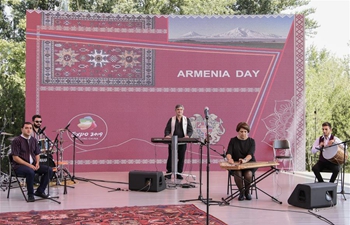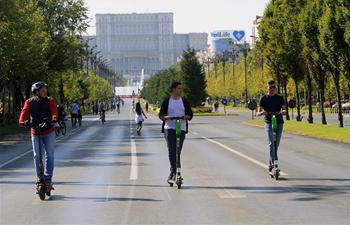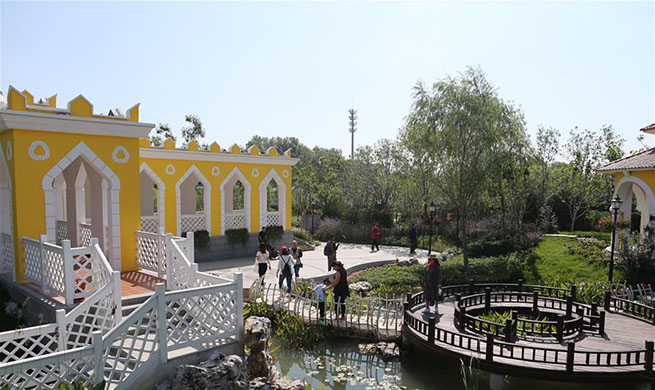by Moritz Rommerskirchen
BERLIN, Sept. 23 (Xinhua) -- The recent state elections in Saxony and Brandenburg have shown again how voters in Germany were polarized and the extent to which the political center was shrinking, experts said.
The country's ruling Christian Democratic Union (CDU) and German Social Democratic (SPD) parties have suffered greatly in the early September elections, yielding ground to the right-wing Alternative for Germany (AfD) party.
In Saxony, the center-right CDU secured a clear victory with 32.1 percent of the vote ahead of the AfD, which garnered 27 percent. In Brandenburg, the center-left SPD was supported by 26.2 percent of the voters, while the AfD won 23.5 percent.
"Voter participation rose significantly but at the the same time the ideological extremes chalked up large gains," Michael Broening, head of international policy analysis at the Friedrich Ebert Foundation (FES), told Xinhua. As a consequence, forces in the center have emerged from the ballot "massively weakened."
The SPD and the CDU had both clearly ruled out forming a coalition with the AfD, dashing that party's hopes of entering a regional government for the first time in its history.
The AfD is mainly associated with an anti-immigrant ideology, which earned the party nationwide appeal and substantial media coverage in the wake of the 2015 "refugee crisis." Throughout the AfD's eastern German strongholds, net immigration is largely negligible if not non-existent.
The disproportionate rise of the AfD in eastern Germany was therefore due to deeper, structural factors, as well as to the relatively high number of new asylum seekers throughout the country.
Although this number has now been declining for three years in a row, the German public's attitudes toward asylum seekers have hardened significantly, according to a study published by the Friedrich Ebert Foundation (FES) earlier this year.
Broening said the German population found itself staring at the east of the country as if it was a "petri dish," watching trends unfold there which were simultaneously local and national in character, such as the polarization of society.
Broening noted that while climate change had already overtaken migration in the public discourse according to surveys, the two topics appealed to entirely different voter groups and their relative success and salience were subject to strong fluctuations.
On the one hand, the growing incidence of extreme weather events in Europe further boosts the popularity of the Greens, whose rise in Germany has alleviated fears of a power grab by the far right.
On the other hand, another influx of refugees in Europe's eastern Mediterranean region in the near future would fit neatly into the AfD's political narrative and could prove those wrong who think that that party has already peaked, according to Broening.













